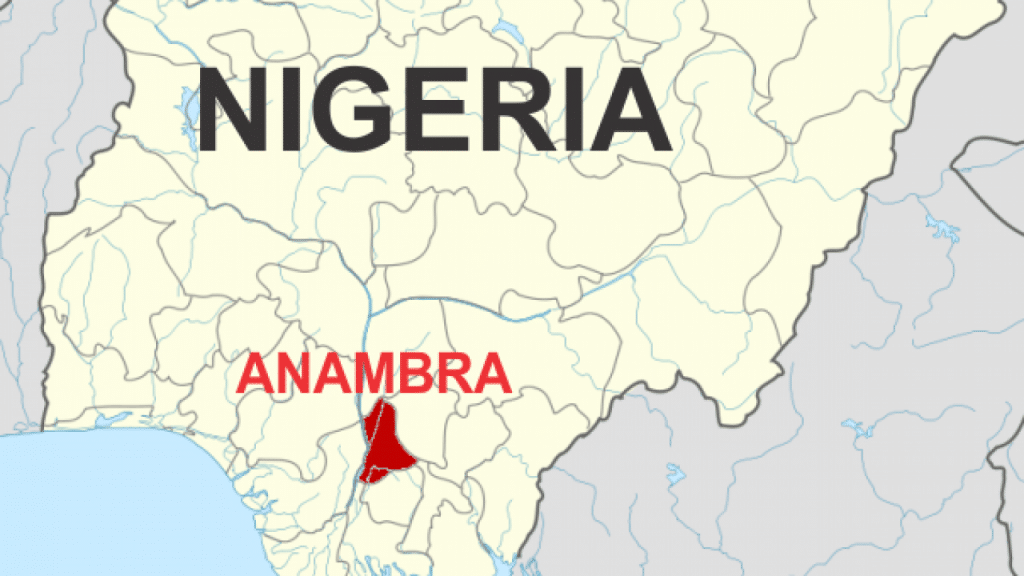Valentine Obienyem
When certain things happen in Nigeria, they rekindle the question of our shared humanity – or rather, the quality of humanity we possess compared to others.
Take Ozubulu, for instance. For years, we all watched a section of the road threatening to split into two. I personally wrote about it, and I remember reading Tai Obasi’s repeated warnings, urging the Federal Government to act before the road finally gave way. Yet, as always, in this tragic theatre called Nigeria, there is never a shortage of willing apologists for failure – the self-anointed guardians of mediocrity. People like Okeke Godwin Iyke, Oraegbunam Pajimo, Adichie, Machi Pius Igwe, Emeka Nwabunwanne, Francis Anajemba, and Ejimofor Opara – ever eager to defend our national stupidity, as though sycophancy were a civic virtue.
 The situation is not peculiar to Ozubulu; it is the story of Nigeria. Yesterday, after we dropped Mr. Peter Obi at the Asaba Airport, on returning, I noticed a deep burrow at the foot of the Onitsha Bridge on the Delta State side. The stretch of road there is already buckled, and any speeding motorist could easily somersault into disaster. One cannot help but ask: do the authorities in Delta State not see this looming tragedy? In other climes, such a hazardous spot would have led to the immediate closure of the entire stretch for repairs. But in Nigeria, we carry on as though nothing is amiss – as if fixing such dangerous spots demanded the strength of Hercules or the wisdom of Solomon.
The situation is not peculiar to Ozubulu; it is the story of Nigeria. Yesterday, after we dropped Mr. Peter Obi at the Asaba Airport, on returning, I noticed a deep burrow at the foot of the Onitsha Bridge on the Delta State side. The stretch of road there is already buckled, and any speeding motorist could easily somersault into disaster. One cannot help but ask: do the authorities in Delta State not see this looming tragedy? In other climes, such a hazardous spot would have led to the immediate closure of the entire stretch for repairs. But in Nigeria, we carry on as though nothing is amiss – as if fixing such dangerous spots demanded the strength of Hercules or the wisdom of Solomon.
I have also, for over five years now, consistently drawn attention to the expanding gully between the first and second Nnamdi Azikiwe University gates along the dual carriageway, as well as another dangerous stretch after the Nkwele-Ezunaka axis on the Awka-bound lane. Last year, when the giant culvert near Big Ballers, off Abakaliki Street, Awka, collapsed, I called on the relevant authorities to intervene — but, as usual, nothing was done. They will not act until the inevitable happens: when the collapse triggers massive erosion, submerges houses, and claims innocent lives. I also recall how I once raised the alarm over another bad spot at the Nkwele-Ezunaka Junction on the dual carriageway, yet the government remained indifferent until it finally caused a fatal accident.
I often use Anambra as an example because it is my state – a place whose roads, institutions, and public structures I know intimately. Yet, as disheartening as these examples are, the situation in many other states is even worse. Across the country, one encounters the same tragic pattern: collapsing infrastructure left unattended, life-threatening gullies ignored, and roads that resemble war trenches rather than public highways. It is a nationwide culture of neglect – a silent, collective indifference that mocks governance and cheapens human life.
It is unbelievable that such accident-inducing spots are allowed to exist for years without attention. What, then, is the quality of governance in Nigeria? Where is our sense of responsibility, our humanity? These are issues that state governments should not wait for the Federal Government to address. How many Rufais do we even have in this country to shout it down their throats before they act? Now that one lane of the Ozubulu road has completely caved in, is it not the people of Anambra who will bear the brunt? If it is not fixed promptly, the second lane will soon collapse, and the resulting pressure on alternative routes will only accelerate their deterioration.
Have you seen the situation on the Delta side that I mentioned? Only an animal would remain unmoved in the face of such a visible and threatening danger – or would wait for “federal intervention” before acting.
Where is compassion in this country? Why should a road be left to the point of total collapse, when just a few million naira could have saved it? We shout, we plead, and nothing happens. Then, when tragedy strikes and lives are lost, government officials suddenly arrive, making a spectacle of directing immediate remediation at a time it will now take billions.
When people like Rufai Oseni raise such issues in a tone that forces even the deaf ears of government to listen, some suddenly emerge to lecture us about the “ethics of journalism.” Yet history teaches that polite whispers rarely move the powerful. It is often the thunder of conviction, not the murmur of civility, that awakens a sleeping nation. Writing about how Martin Luther’s fiery speech stirred a revolution, Will Durant observed: “His whole life was a battle – against the sense of guilt, against the Devil, the Pope, the Emperor, Zwingli, even against the friends who would have compromised his revolt into a gentlemanly protest politely heard and carefully forgotten.”
Likewise, Rufai’s passionate – and, if you will, forceful – insistence has transformed what might have been a routine complaint into a moral crusade for accountability. His outcry transcends the decay of our roads; it exposes, more profoundly, the collapse of conscience in our nation.
Honestly, what do we do with Nigeria? Each passing day, our silence in the face of decay becomes an endorsement of failure. We have normalised tragedy, adjusted to incompetence, and baptised negligence as destiny. When you read Gibbon’s “The Decline and Fall of the Roman Empire”, you will understand that nations do not collapse in a single day; they die slowly – through the daily indifference of those who see evil and say nothing, and of those, like the ones I mentioned earlier, who watch decay and applaud it. The rude fist of bad leaders, like the ones we have in the country today, often delivers the final, knock-out blow.
Until we rediscover our collective conscience, demand accountability without fear, and insist that leadership means service, Nigeria will remain a land of abandoned projects, broken roads, and broken souls. The real reconstruction our nation needs is not of asphalt and bridges, but of values, conscience, and the very idea of responsibility.






